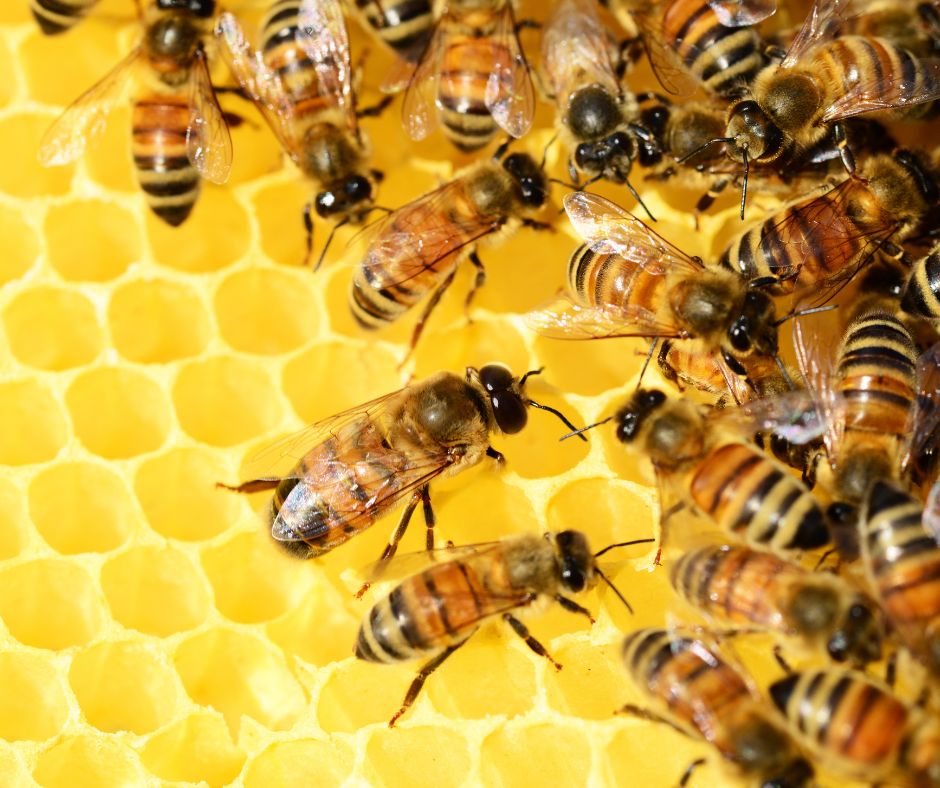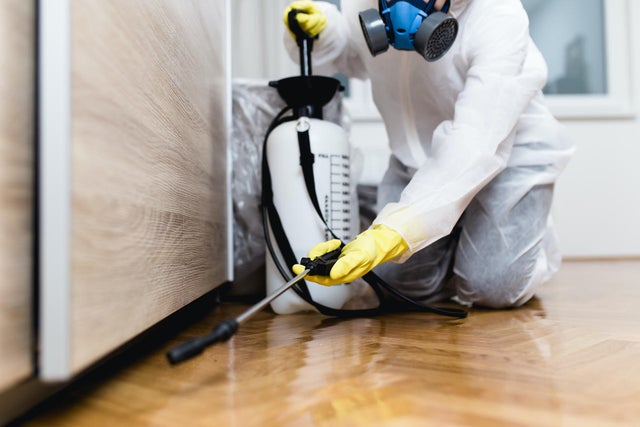Effective Cockroach Exterminator Port Charlotte to Prevent Infestations in Your Home
Wiki Article
Discover the current Advances in Bug Control and How to Carry Out Efficient Treatment Solutions
In the last few years, the area of insect control has actually witnessed considerable developments, driven by the need for sustainable and reliable therapy remedies. Innovative approaches such as Integrated Bug Monitoring (IPM) combine environment-friendly exercise with advanced innovation, enhancing both efficiency and ecological duty. The integration of wise innovations and Do it yourself approaches has actually encouraged individuals to tackle insect issues much more successfully. As we discover these advancements, it comes to be vital to recognize just how ideal to apply these strategies in different settings to accomplish ideal results. The effects for pest management practices could be transformative.Eco-Friendly Parasite Control Options
Recently, the demand for environmentally friendly pest control alternatives has risen as services and property owners alike look for sustainable alternatives to standard chemical treatments. This change is driven by growing environmental understanding and a desire to decrease the health and wellness risks connected with synthetic chemicals.

Eco-friendly insect control approaches encompass a variety of approaches that prioritize using all-natural substances and methods. Integrated Bug Management (IPM) is one such method, integrating biological, social, and mechanical tactics to manage insect populaces while lowering reliance on chemicals (Wildlife removal services). This alternative approach stresses prevention through habitat control and the intro of all-natural killers, thereby promoting a balanced environment
An additional preferred alternative is the use of herb chemicals originated from plants, which often tend to be much less harmful to non-target organisms. Products like neem oil and diatomaceous planet have gained traction for their effectiveness in controlling insects while positioning very little risks to human health and wellness and the setting.
In addition, exemption methods, such as securing entrance points and keeping sanitation, play a crucial role in eco-friendly pest management. By adopting these lasting techniques, people and organizations can successfully handle insects while promoting a much healthier earth for future generations.
Smart Innovation in Pest Management
Innovation is improving the landscape of bug administration, with clever modern technology becoming an essential force in boosting performance and efficiency - Wildlife removal services. The integration of Net of Points (IoT) gadgets, expert system (AI), and information analytics is transforming how bug control professionals come close to invasions
Smart traps outfitted with sensors can detect parasite activity in real-time, sending out immediate alerts to drivers. This enables for prompt reactions, minimizing damages and decreasing the demand for substantial treatments. In addition, AI algorithms assess historical information to predict parasite behavior, making it possible for positive treatments based on ecological conditions and invasion patterns.
Drones and automated cars are likewise playing a substantial function in pest administration, offering airborne analyses of huge areas, determining hotspots, and also dispersing targeted treatments. These technologies not only enhance procedures but likewise boost safety and security by limiting human direct exposure to potentially dangerous chemicals.
Furthermore, mobile applications equip customers to monitor bug activity and gain access to expert guidance, cultivating a collaborative method to pest administration. In general, the fostering of smart technology is establishing a new requirement in insect control, highlighting data-driven choices and sustainable techniques that inevitably benefit both home owners and specialists alike.
Integrated Pest Administration Approaches
Integrated Parasite Management (IPM) employs a holistic method to pest control, integrating different methods to properly take care of pest populations while minimizing risks to human health and the environment. IPM revolves around recognizing the pest life process, their all-natural adversaries, and the ecosystem in which they thrive.One of the basic parts of IPM is monitoring pest populations via normal examinations and information collection. This enables the recognition of insect limits, establishing when treatment is essential. Social methods, such as crop rotation, hygiene, and environment adjustment, are crucial in reducing pest prevalence and advertising plant health and wellness.
Mechanical controls, including traps and obstacles, are likewise vital in Termite treatment Port Charlotte IPM. These approaches can literally remove or deter parasites without using chemicals. When required, the sensible application of chemical controls is utilized, concentrating on targeted therapies that reduce ecological effect.
Education and learning and cooperation amongst stakeholders, consisting of farmers, insect control specialists, and the neighborhood, are important for the successful application of IPM techniques. By focusing on sustainable practices, IPM not just addresses pest issues yet also cultivates a healthier ecological community.
Biological Control Techniques
Numerous organic control methods are progressively recognized for their efficiency in managing bug populations while promoting environmental equilibrium. These methods harness all-natural killers, parasites, and microorganisms to decrease pest numbers without depending on artificial chemicals. For example, the intro of ladybugs can effectively manage aphid populaces, while nematodes target soil-dwelling insect larvae.Furthermore, using microbial chemicals, such as Bacillus thuringiensis (Bt), provides an eco-friendly alternative for handling caterpillar parasites. These products specifically target pest types, minimizing damage to beneficial insects and pollinators. Moreover, preservation biological control emphasizes improving environments for all-natural opponents, such as birds and helpful insects, thus motivating their existence in farming systems.
Research study proceeds to expose ingenious strategies within this area, such as the usage of pheromones to interfere with pest mating patterns or the advancement of biocontrol agents with genetic engineering. Carrying out these techniques can bring about sustainable parasite management practices that mitigate the reliance on chemical treatments, inevitably cultivating much healthier ecological communities. As awareness of these strategies expands, they are coming to be indispensable parts of incorporated pest management (IPM) strategies, offering an equilibrium in between reliable bug control and environmental stewardship.
DIY Parasite Control Solutions
As home owners look for effective ways to deal with pest concerns, do it yourself pest control options have actually acquired popularity for their availability and cost-effectiveness. These approaches equip individuals to address problems utilizing readily offered materials and methods, frequently without the need for specialist treatment.
Additionally, preserving appropriate hygiene and routine examinations can prevent insect entrance and nesting (Wildlife removal services). Basic techniques, such as securing splits, removing food resources, and decluttering, can significantly diminish insect populations. Traps, both homemade and commercially offered, can likewise use reliable remedies for monitoring and controlling specific pests like rodents or insects

Final Thought
The combination of eco-friendly insect control choices, clever modern technology, and innovative administration methods offers a comprehensive method to efficient bug monitoring. By welcoming Integrated Pest Administration (IPM) and making use of organic control methods, along with DIY options, lasting and accountable insect control can be accomplished.Environment-friendly bug control techniques include a variety of methods that focus on the use of natural materials and practices. Integrated Parasite Management (IPM) is one such approach, combining organic, social, and mechanical methods to take care of parasite populaces while decreasing reliance on chemicals. As awareness of these techniques expands, they are coming to be indispensable parts of integrated insect management (IPM) approaches, providing a balance between effective parasite control and ecological stewardship.
The combination of environmentally friendly pest control options, clever technology, and ingenious management approaches provides an extensive approach to reliable bug management. By welcoming Integrated Bug Administration (IPM) and utilizing biological control techniques, alongside Do it yourself services, responsible and lasting insect control can be achieved.
Report this wiki page